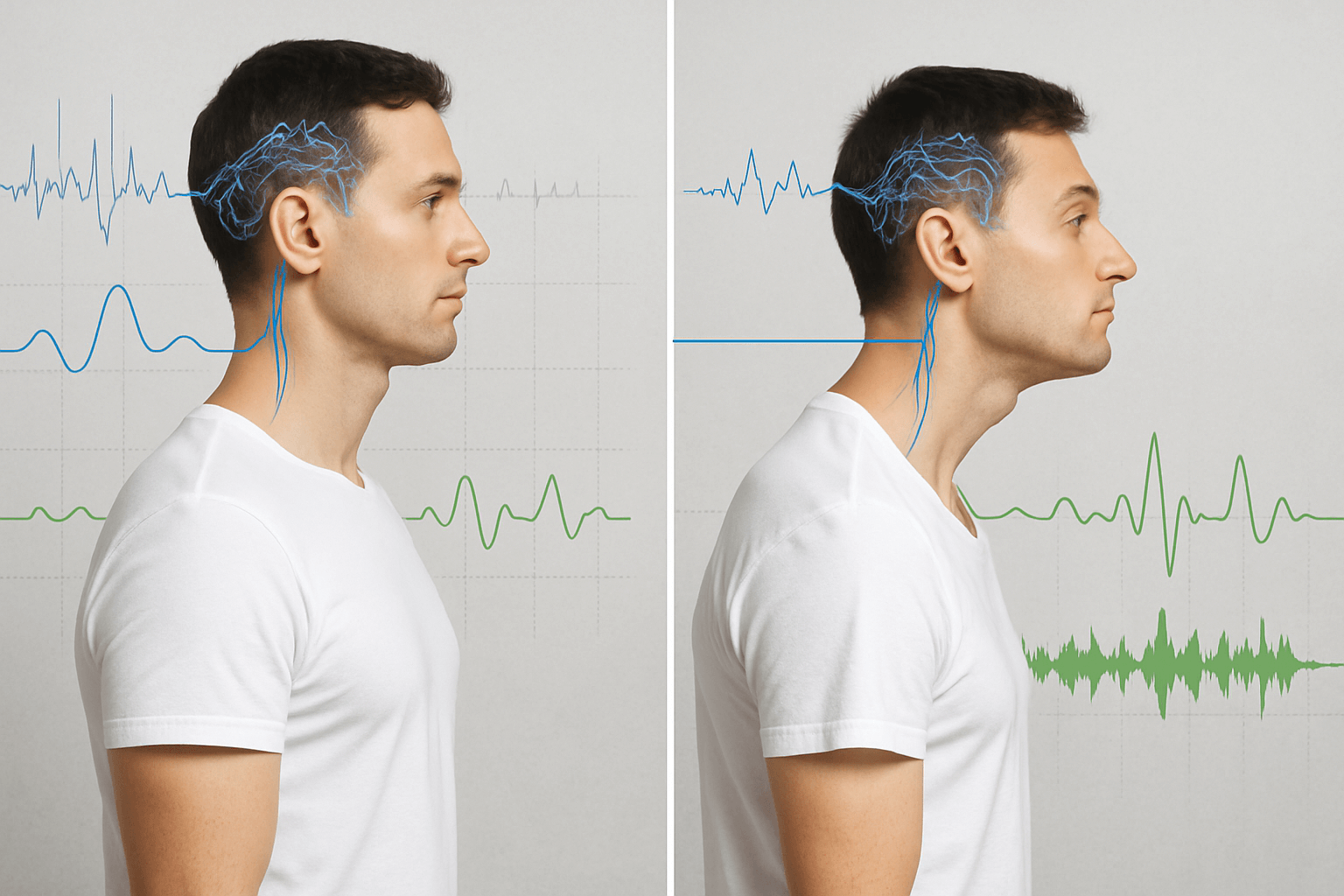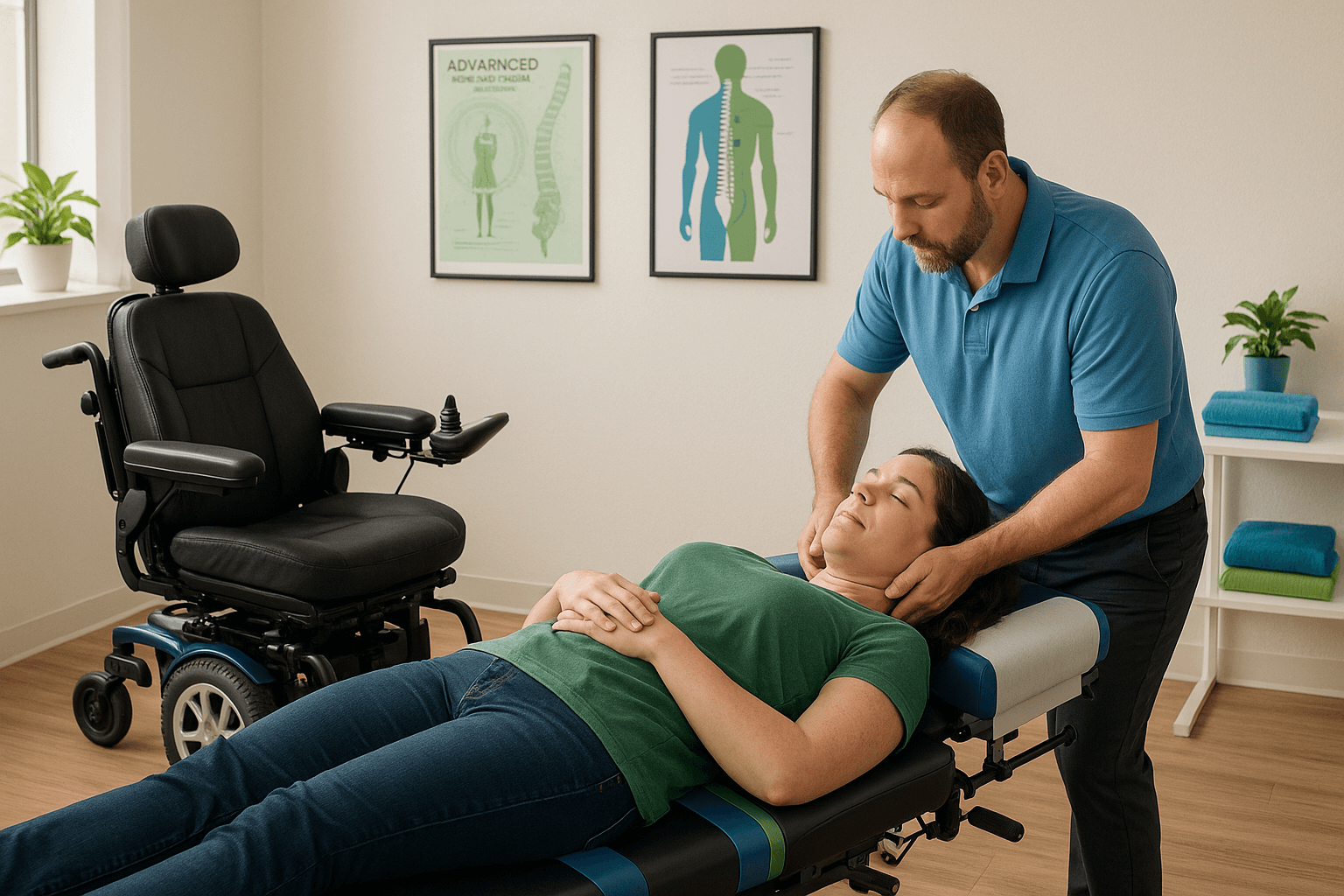Shoulder mobility is essential for performing everyday activities such as cooking, washing hair, getting dressed, typing, brushing teeth, and driving. Frozen shoulder can make even these simple tasks difficult and painful. While this condition is challenging, proper treatment and patience can help restore mobility and function.
Frozen shoulder, also known as adhesive capsulitis, causes pain, stiffness, and restricted movement in the shoulder joint. It often develops due to misalignments in the skeleton, which lead to twisting of the spine and locking of the shoulder joint. This condition may also result in chronic inflammation, weakness of the shoulder stabilizers, and significant mobility limitations.

Jump To:
TLDR – Quick Guide
- What is frozen shoulder? A condition that causes pain, stiffness, and loss of mobility in the shoulder.
- What causes frozen shoulder? Misalignments in the skeleton, chronic inflammation, poor posture, and overuse.
- Who is at risk? People over 60, diabetics, individuals with poor posture, or those recovering from injury/surgery.
- How does it affect daily life? Limits movement, disrupts sleep, and makes basic activities difficult.
- What is the best treatment? Advanced BioStructural Correction (ABC™) to correct misalignments and restore mobility.
Detailed Breakdown: How Frozen Shoulder Impacts Daily Life
1. What is Frozen Shoulder?
Frozen shoulder occurs when misalignments in the skeleton lock the shoulder joint, causing severe stiffness, pain, and limited mobility. As a result, common daily activities become difficult. The condition is more common in women than men, possibly due to posture-related factors such as bra use. It is also frequently seen in diabetics, as they experience slower tissue healing and increased inflammation.
2. Common Symptoms of Frozen Shoulder
People with frozen shoulder often experience:
- Pain when lifting or rotating the arm
- Weakness in shoulder and arm muscles
- A feeling of tightness or fullness in the shoulder joint
- Difficulty sleeping due to pain
- Severe mobility restrictions, especially reaching overhead or behind the back
3. How Frozen Shoulder Affects Sleep and Health
Frozen shoulder worsens at night, making it difficult to get restful sleep. Lack of quality sleep leads to:
- Increased stress and irritability
- Weakened immune system
- Higher risk of heart disease and diabetes
- Difficulty concentrating and reduced reaction time
This cycle of pain, sleep deprivation, and stress can significantly impact mental and physical health, making it harder to recover from frozen shoulder.

4. Risk Factors for Frozen Shoulder
Frozen shoulder is more likely to develop in people who:
- Are over 60 years old
- Have chronic back pain or stiffness
- Suffer from diabetes or rheumatoid arthritis
- Have had an injury or surgery affecting the shoulder
- Experience high levels of stress or repetitive arm overuse (e.g., excessive texting, desk work)
- Have poor posture
5. Why You Shouldn’t Wait for Frozen Shoulder to Heal on Its Own
While frozen shoulder can gradually improve over 1-2 years, underlying misalignments remain, leading to future complications such as:
- Chronic back pain and poor posture
- Weak shoulder stability, increasing injury risk
- Compensatory issues in the neck, upper back, and arms
Ignoring treatment allows the condition to linger, impacting overall quality of life.
6. Effective Treatment for Frozen Shoulder
The best approach to frozen shoulder treatment is correcting skeletal misalignments with Advanced BioStructural Correction (ABC™).
How ABC™ Helps:
- Restores proper skeletal alignment to relieve pressure on the shoulder joint
- Reduces muscle and joint tension, improving mobility
- Provides lasting relief instead of temporary symptom management
- Corrects posture to prevent future occurrences
Many patients experience significant improvement in just weeks or months, rather than waiting years for symptoms to subside naturally.
Key Takeaways
- Frozen shoulder causes pain, stiffness, and limited mobility, making daily activities difficult.
- Poor posture and skeletal misalignments contribute to the condition.
- Lack of sleep and chronic stress worsen symptoms.
- Age, diabetes, injury, and poor posture increase the risk of developing frozen shoulder.
- ABC™ treatment realigns the skeleton, restores movement, and accelerates recovery.
Frequently Asked Questions (FAQs)
1. What causes frozen shoulder?
Frozen shoulder occurs due to skeletal misalignments that lock the shoulder joint, leading to pain and restricted movement.
2. Can frozen shoulder go away on its own?
Yes, but it can take 1-2 years, and underlying misalignments remain, increasing the risk of further complications.
3. How does frozen shoulder affect sleep?
Pain worsens at night, making it difficult to sleep, leading to fatigue, stress, and an increased risk of other health issues.
4. Who is at risk for frozen shoulder?
4. Who is at risk for frozen shoulder?
People over 60, diabetics, those with poor posture, or individuals recovering from injury or surgery are at higher risk.
5. What is the best treatment for frozen shoulder?
Advanced BioStructural Correction (ABC™) is the most effective treatment, as it corrects misalignments, relieves tension, and restores full mobility.
Frozen shoulder can significantly disrupt daily life, sleep, and mobility, but with the right treatment, recovery is possible. Contact Upright Posture today to learn how ABC™ can help you regain shoulder function and live pain-free!






